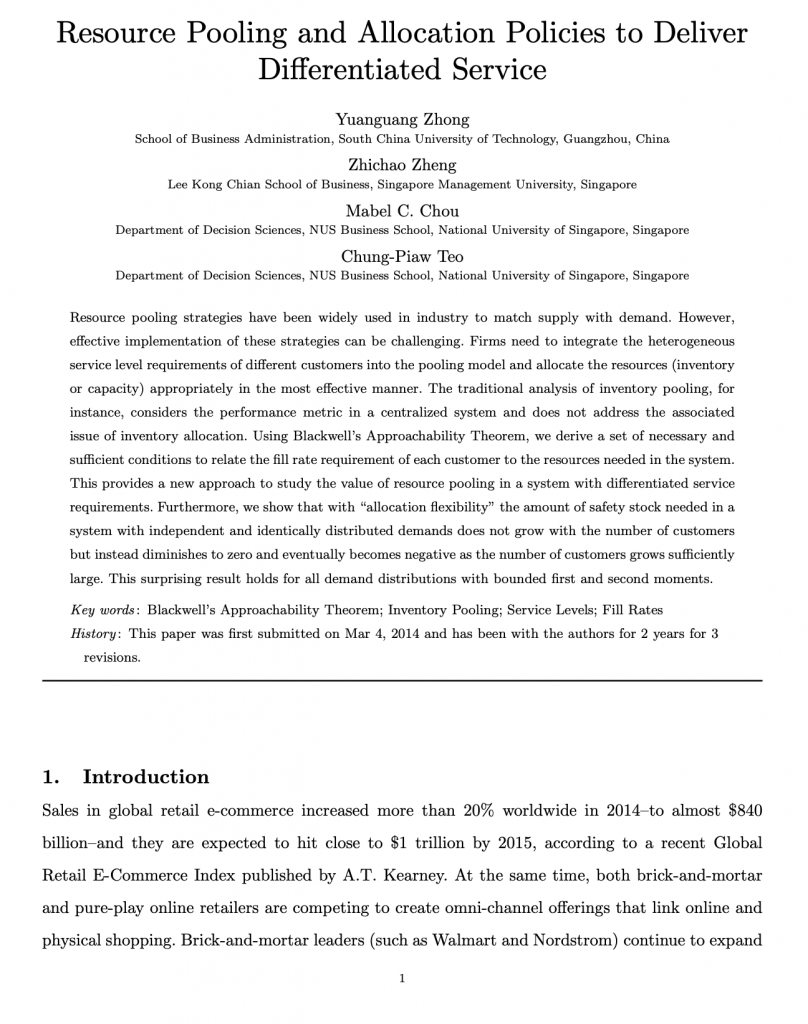Resource pooling strategies have been widely used in industry to match supply with demand. However, effective implementation of these strategies can be challenging. Firms need to integrate the heterogeneous service level requirements of different customers into the pooling model and allocate the resources (inventory or capacity) appropriately in the most effective manner. The traditional analysis of inventory pooling, for instance, considers the performance metric in a centralized system and does not address the associated issue of inventory allocation. Using Blackwell’s Approachability Theorem, we derive a set of necessary and sufficient conditions to relate the fill rate requirement of each customer to the resources needed in the system. This provides a new approach to study the value of resource pooling in a system with differentiated service requirements. Furthermore, we show that with “allocation flexibility” the amount of safety stock needed in a system with independent and identically distributed demands does not grow with the number of customers but instead diminishes to zero and eventually becomes negative as the number of customers grows sufficiently large. This surprising result holds for all demand distributions with bounded first and second moments.


